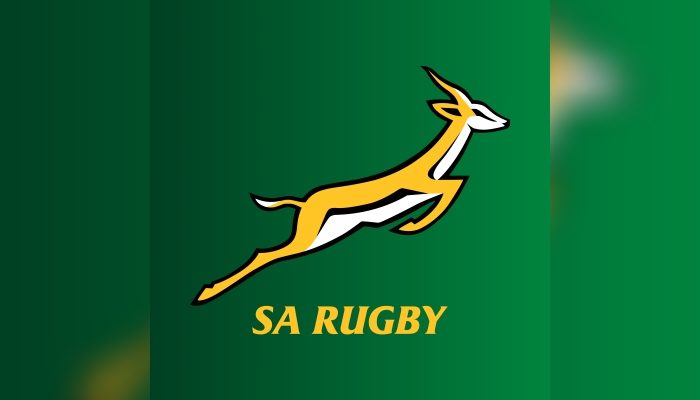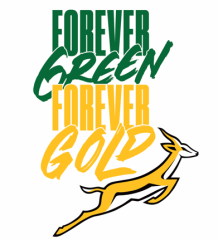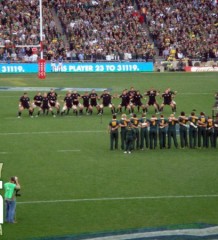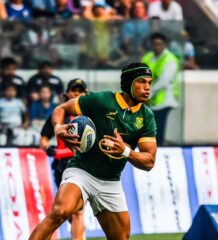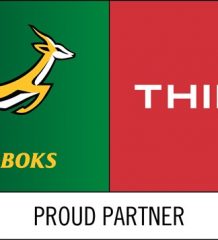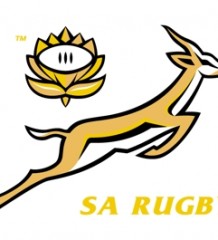SA Rugby president sets sights on No 1 ranking for Springboks
SA Rugby’s vision remains to be the leading rugby nation in the world, Mr Mark Alexander, the union president, said after the organisation’s Annual General Meeting (AGM) in Cape Town on Thursday.
Mr Alexander chose the 25th such occasion since rugby unity to re-commit the organisation to inspiring and uniting South Africa through the sport.
“In Kimberley on 20 March 1992, four different national rugby governing bodies came together to create the organisation that we now lead,” Mr Alexander said. “Now is the time to take stock of our journey and re-commit ourselves.
“We acknowledge that we have some way to go. We have made mistakes and we will not always get it right.
“But we have given South Africa moments of great joy and proved rugby’s supreme capacity to build our nation. Today, we must renew that journey.”
Mr Alexander said the Springboks’ lowly World Rugby ranking (7th) meant that the organisation was starting the next 25 years from a historically low base.
“Let’s not beat around the bush: it turned out to be the toughest and most challenging year in a quarter of a century – both on and off the field,” he said.
“The fortunes of our business are chiefly determined by one over-riding factor: the performance of the flagship team. The form of the Springboks in 2016 was at its lowest ebb since rugby unity in 1992.
“The new era and new dawn we had all hoped for failed to materialise. But 2017 will be different.
“We have now held three coaching and two conditioning indabas and developed a coaching blueprint bought into by all our Vodacom Super Rugby coaches. I would once again like to commend Johan Ackermann, Nollis Marais, Franco Smith, Deon Davids, Robert du Preez and Robbie Fleck for their fantastic cooperation, insight and support in this process. It has the potential to be truly game-changing for SA Rugby.”
He said that the Springboks’ management team had also been bolstered by the appointment of Smith and Brendan Venter – the latter in a consultancy role – while the rules on the selection of overseas-based players had been amended to encourage young players to remain in South Africa. Overseas-based players will only be eligible for selection after 1 July 2017, if they have won 30 or more Test caps.
Mr Alexander said he hoped off-field changes, approved in December, would have a similar impact. Those changes included the opening of rugby to greater business influence by allowing equity partnerships of up to 74% in the commercial arms of unions; the creation of a new fit-for-purpose committee structure as well as an increase in independent representation on the Executive Council.
The roll-out of a 100-day plan had also addressed multiple issues including a revision of domestic competitions; the preparation of a Rugby World Cup 2019 campaign plan; the development of a fan engagement strategy and of a new licensing model for participation in competitions.
Mr Alexander said that transformation remained a critical item on rugby’s agenda: “It is vital for a business and rugby-playing sense that we continue to make progress and for that, we need the whole-hearted buy-in of our members whom we rely on to keep raising the bar,” he said.
“We are also being aggressive in that area and the establishment of the Rugby Education Foundation as a not-for-profit organisation to raise funds to support largely black rugby players at academies around the country is an important part of that process.”
He said that he was optimistic that SA Rugby would receive clearance to submit a formal bid to host Rugby World Cup 2023 as well as the government’s financial support for the tournament.
“Hosting the Rugby World Cup for the second time in 28 years is imperative both for our game and our country,” he said. “We offer World Rugby the chance to put on a highly profitable and unforgettable tournament in unbeatable stadiums and conditions. We have shown our hunger and passion for the tournament by bidding for 2011, 2015 and 2019 events. We are ready.
“Rugby belongs to the people of South Africa. It is a national asset and it has the power to build our nation. We will do it by being a winning team on and off the field. We will be the leading rugby nation.”
Note to editors: Rugby Unity was achieved on 20 March 1992 (two years before South Africa held its first democratic elections) following covert negotiations between the old South African Rugby Board (SARB) and the banned ANC from 1988 onwards. SARB, the non-racial South African Rugby Union, the South African Rugby Football Federation and the South African Rugby Association came together in 1992 to form the South African Rugby Football Union (SARFU) under the joint presidency of Ebrahim Patel (SARU) and Danie Craven (SARB).
Issued by SA Rugby Communications
Related Posts
« Own the Force shares available now Bok Women’s Sevens top pool in Hong Kong »


